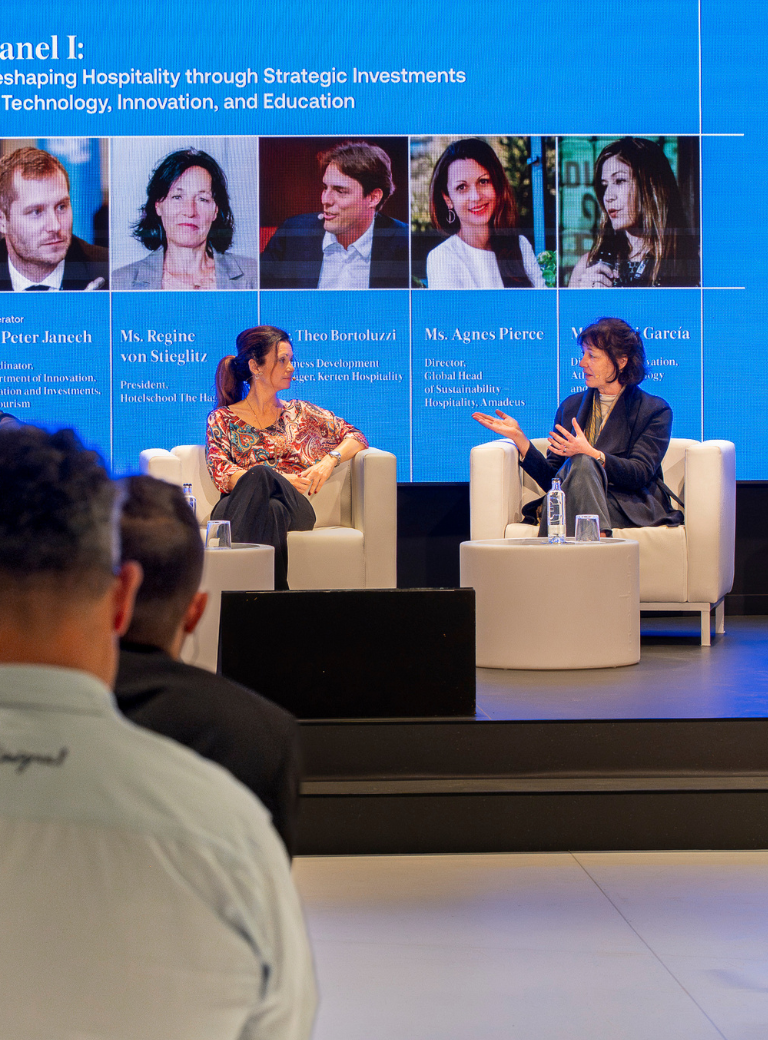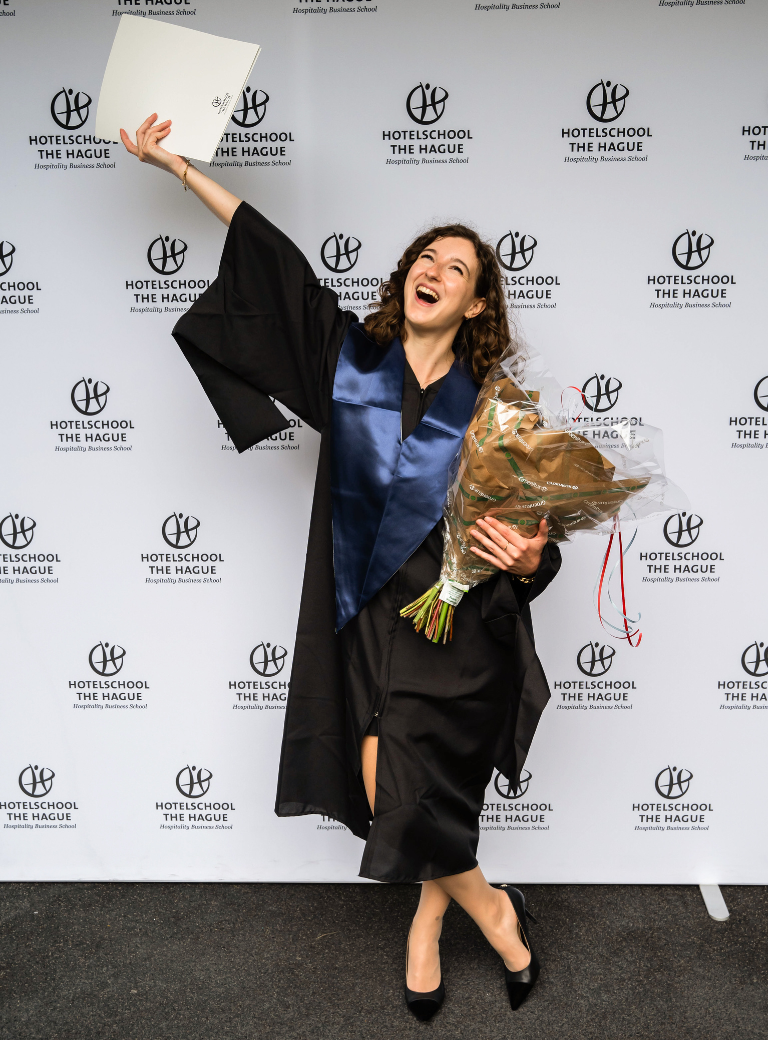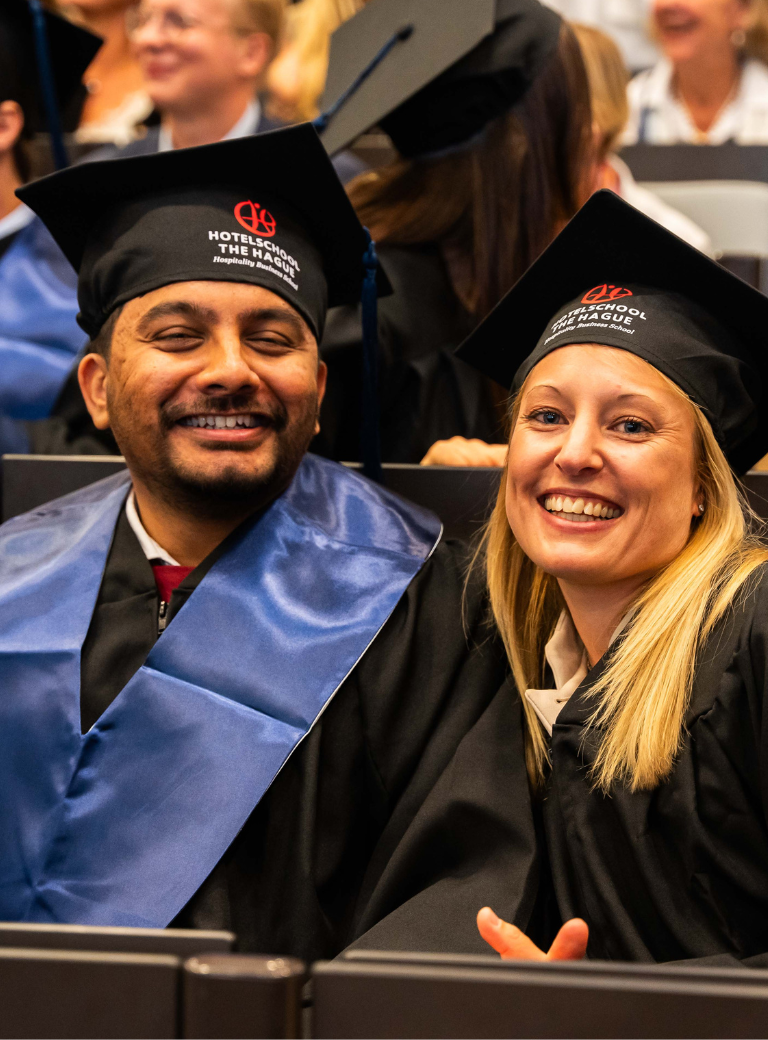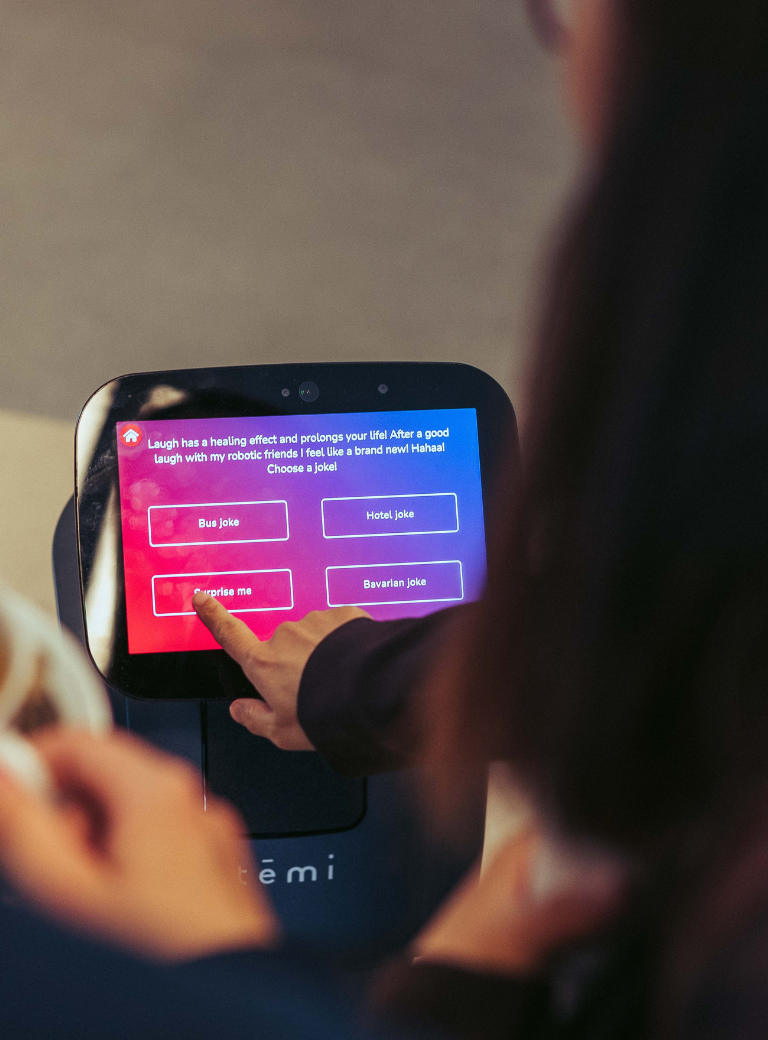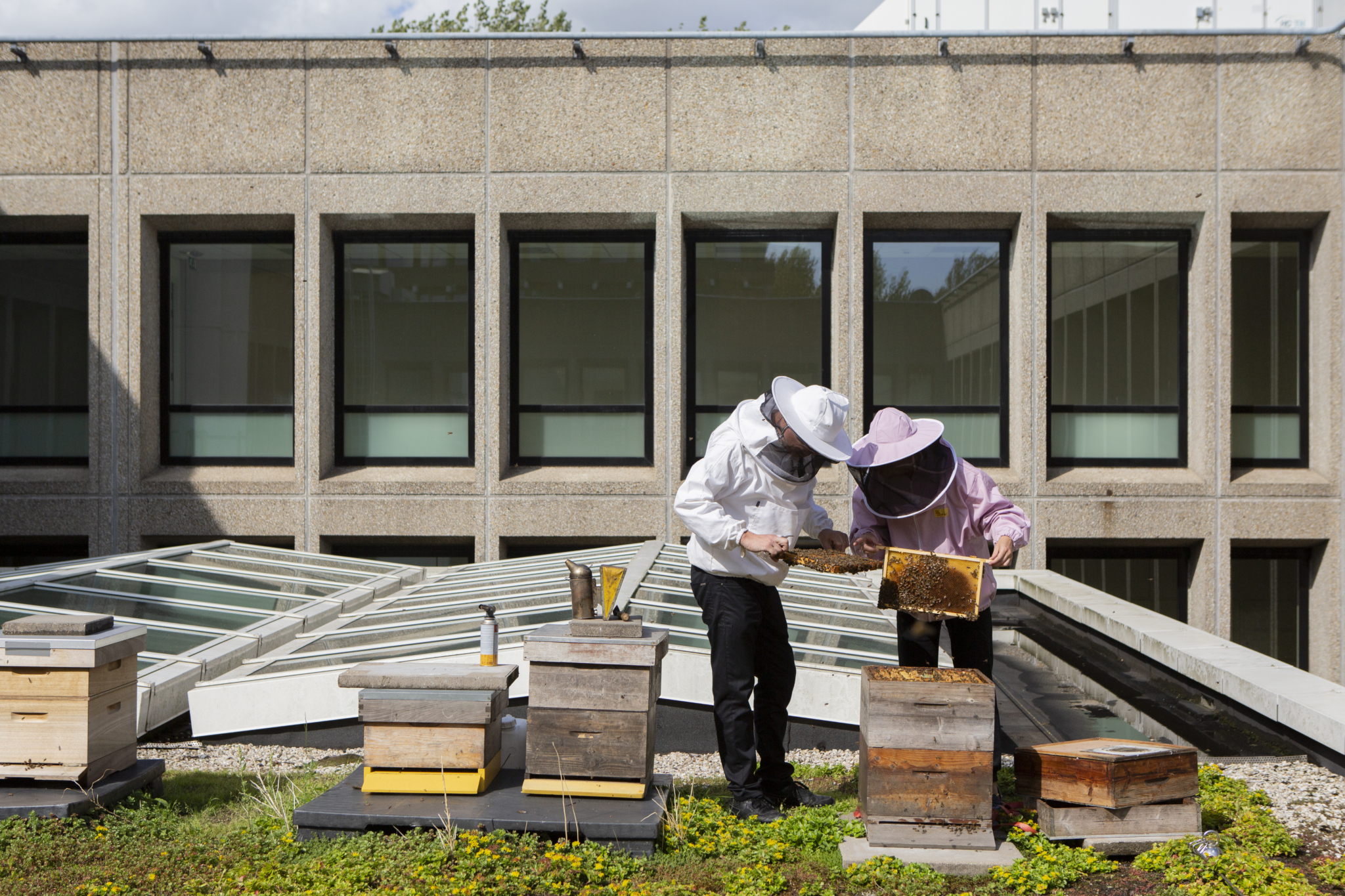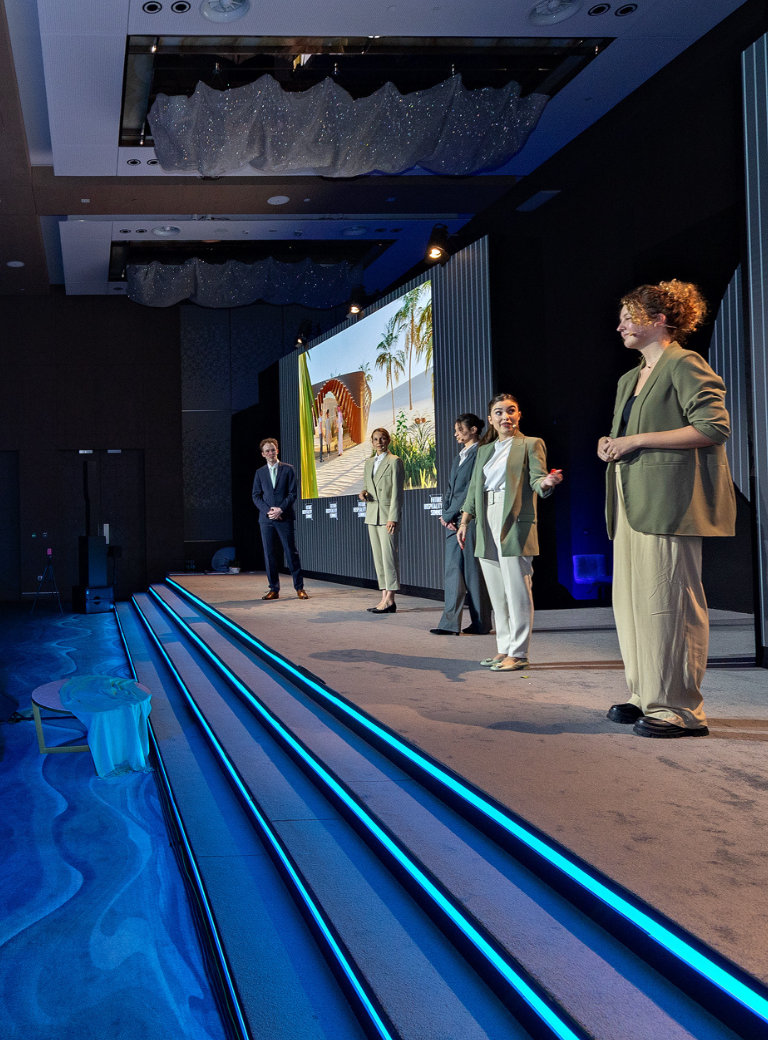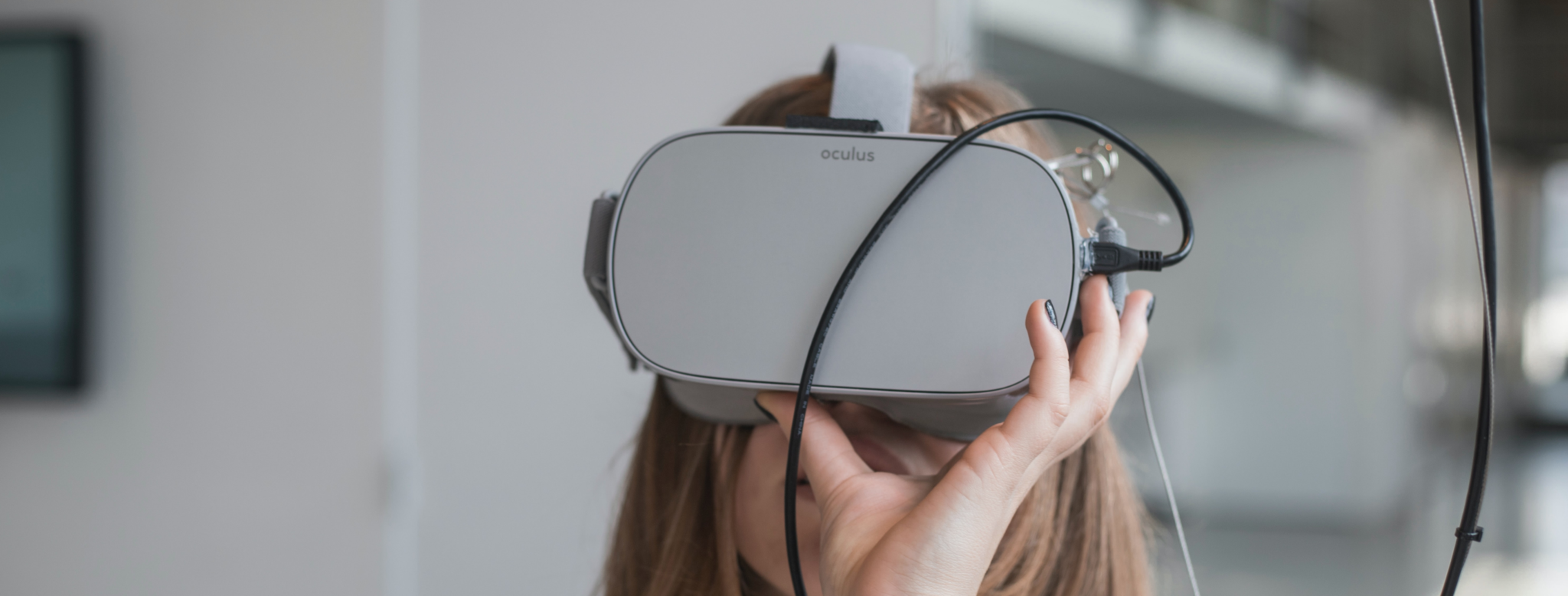
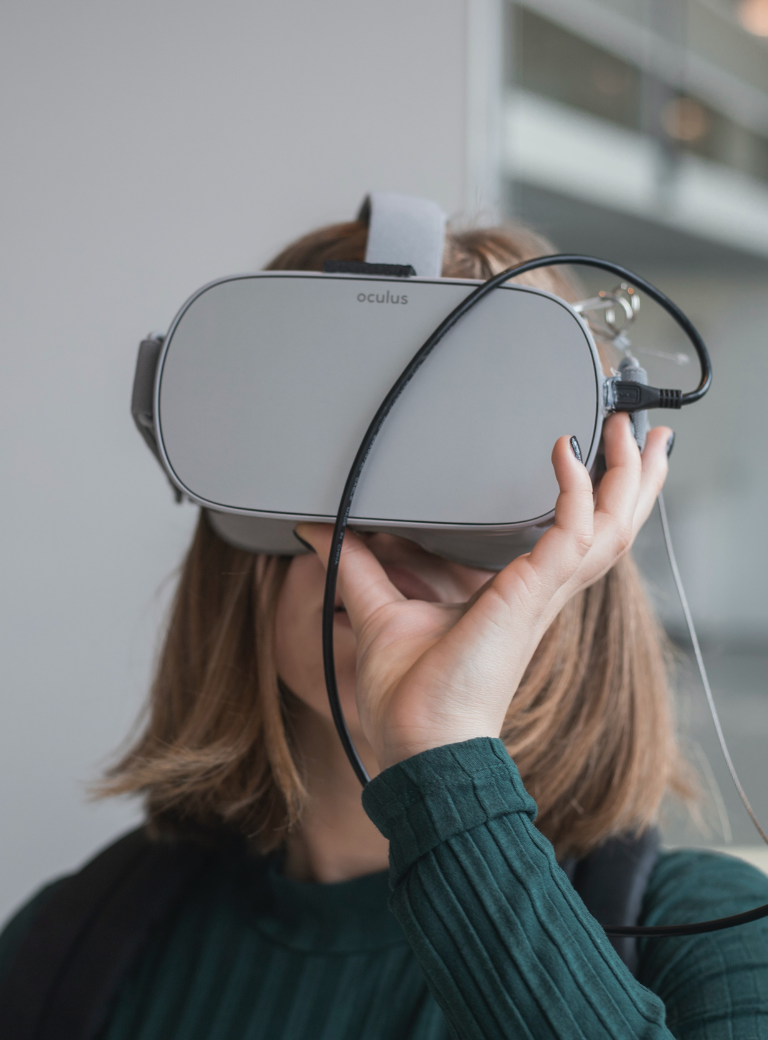
Implementing immersive technologies in higher education
Hotelschool The Hague prepares students for a future-proof career in hospitality by incorporating the latest immersive technological innovations into its curriculum.
Article by Praneschen Govender, Lecturer and Researcher VR AR in Education.
In the aftermath of the pandemic and big tech marketing of the Metaverse, awareness of the immersive technologies such as virtual reality (VR), augmented reality (AR) and their benefits have risen within the global hospitality industry and other sectors.
VR involves full immersion with most senses being blocked from the outside world and uses audio and visual stimuli through a headset to create the illusion of being present in another environment. In AR, the real world remains the common structure over which digital information is overlayed for specific functionalities, e.g. Google Maps Live View or Snapchat filters.
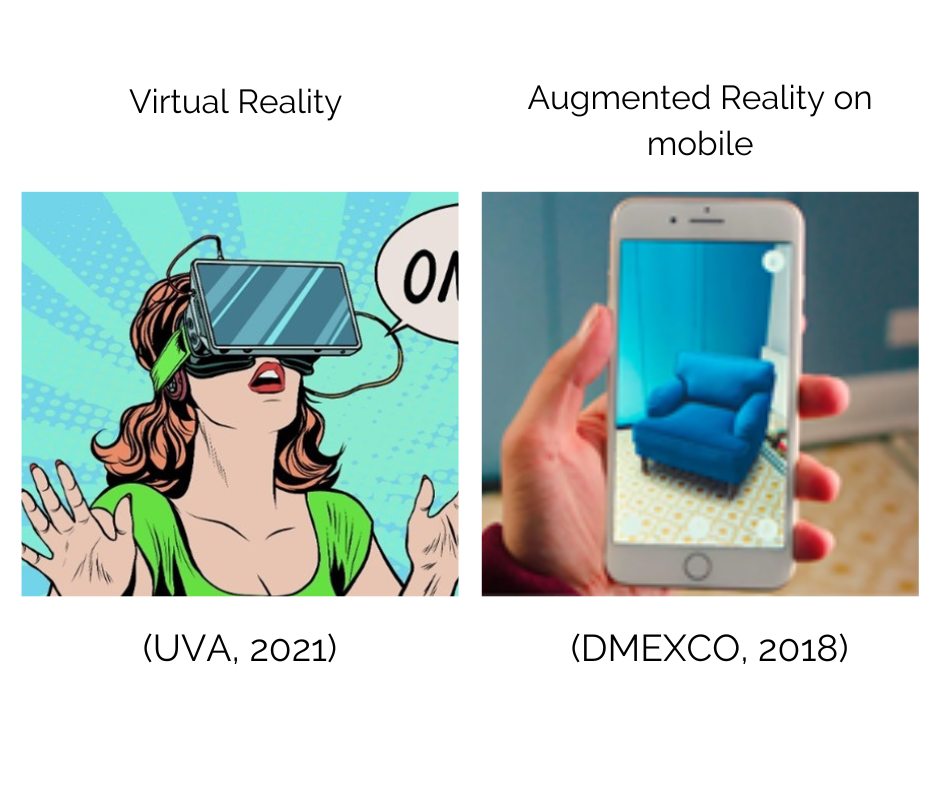
VR use cases in hospitality
In hospitality, some cases of VR include event planning, training, customer experience prototyping and marketing. Apps such as ShapesXR can be used to create quick prototypes for event planning allowing the spatial layout and flow of the event space to be pre-tested in VR before real-life setup. A 360 video is a cost-effective VR alternative where a 360 camera shoots high-resolution video of the real-world in two directions. The latter is then stitched together to create an immersive sphere and convey an experience. 360 videos are useful to recreate induction experiences enabling familiarity with the work environment, allowing new employees to practice standard operating procedures prior to their first day. In addition to its ability to convey emotion in a realistic way, 360VR is a great match for soft skills training like practicing difficult conversations, e.g. dealing with difficult guests or conflict resolution within a safe environment.
AR use cases in hospitality
On the other hand, AR allows users to have a digital overlay over the real-world in order to provide useful information. AR can be viewed within the camera view of a phone, tablet or augmented reality glasses (e.g., Microsoft HoloLens) allowing one to place 3D objects, 2D video, text or images into their field of view. This way they can visualize these for specific purposes, e.g., how a new couch will look like inside a hotel room for improving interior design. Other use cases of AR in hospitality are to promote brand engagement through quick interactive experiences e.g., virtual tours or treasure hunts. Holograms can be used to welcome guests and introduce them to the property. These are well-suited to introducing topics related to hospitality training and can even be combined with other media, such as 360 images and 2D instructional videos, for step-by-step procedural training.
How is Hotelschool The Hague implementing immersive technologies in its curriculum?
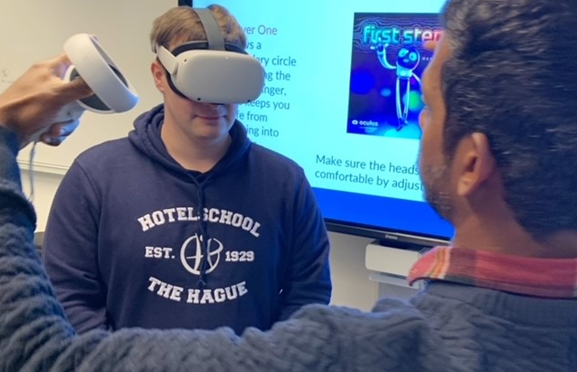
The HTH VR AR project, led by Praneschen Govender, started in 2022. It aims to identify learning opportunities in the new curriculum where the benefits of AR and VR can be leveraged to achieve experiential learning outcomes. In turn, these can create a future-focused learning experience encompassing play and showcasing immersive content that is personal and real.
HTH has introduced immersive technologies into eight courses of its curriculum thus far, with AR and VR being embedded in the Future of Work Minor, Master Leading Hotel Transformation (Culture and Innovation), and Business Transformation Solutions. After the delivery of an immersive experience in the classroom, the didactical process shifts to structured reflection through an experiential learning model to relate and apply classroom theory to solve the problem faced in the VR / AR scenario. The experience is turned into a learning moment through critical in-class reflection and group coaching approaches.
Currently, a related project feeding into the HTH VR AR Project is the Transforming Hospitality Education through Tech Abilities (THETA) Erasmus + research project. HTH is working in this together with four partner institutions, The University of Balearic Islands, Spain, Haaga Helia, Finland and TU Dublin, Ireland.
The THETA project aspires to enable real-life learning through immersive technologies on mobiles to enhance hospitality education. Furthermore, the project intends to develop guidelines for educators and learners on how to create their own low-tech AR and VR experiences on mobile which are easy to use to enrich teaching and learning.
The THETA project is developing four prototypes using immersive technologies which are being iteratively tested in corresponding use cases of hospitality education:
- The Outlets in 360VR: Allows students to feel present in hospitality outlets such as the kitchen and front desk without having to be there physically while providing an introduction to equipment and processes.
- Interactive AR Hotel room: With this prototype, students can visualize the differences between 3, 4 or 5 star hotel rooms by adding in 3D models and 360 images of different types of beds and furniture through the camera view of their phones.
- AR Holographic chef: This allows interaction with a holographic chef to visualize and practice recipes, cutting techniques and tea-making in one’s own time, whilst having a personal connection to the instructor.
- Branched Storytelling in 360VR: This prototype uses 360 videos for soft-skills training giving students the chance to experience the emotion of a difficult conversation with a guest while testing decision-making and critical-thinking skills
The HTH VR AR Project aspires to collaborate with practical education, course teams and other interested institutions and organisations to develop an ecosystem of stakeholders working together on VRAR in education. We will keep you updated and disseminate our findings on the various projects.
Lecturer Praneschen Govender also wrote this article about VR in Education.
For further information, please contact research@hotelschool.nl
